My firstborn turns seven this year, and like most other 6-going-on-7 year olds, he began that rite of passage known to us as Primary School. It is now almost a few months since school began, and I am glad that my son has settled down well into primary school life.
For the most part, he likes going to school, and we have been able to talk through and work out any minor issues faced along the way. I am thankful to see him enjoying school since we have been preparing for this new phase of life for some months now.
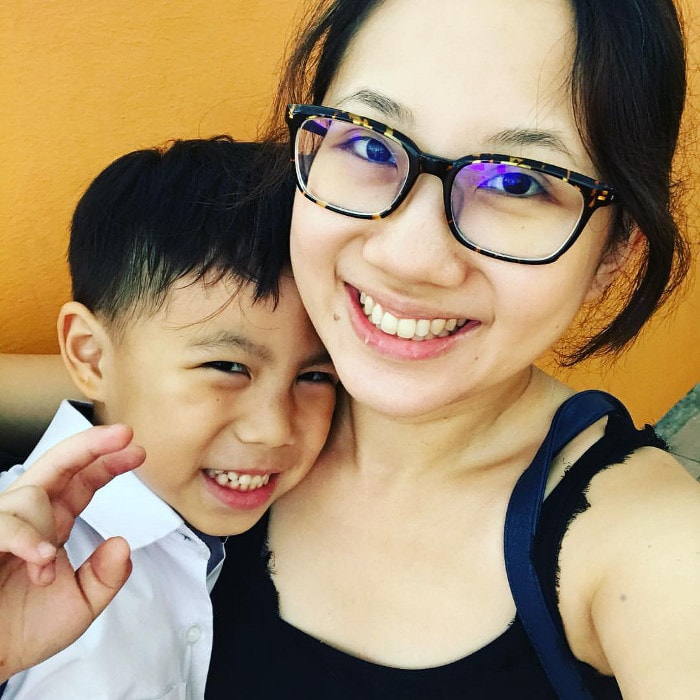 Dorothea and her eldest son. Photos courtesy of Dorothea Chow
Dorothea and her eldest son. Photos courtesy of Dorothea Chow
While the below methods are certainly not foolproof of preparing your child for Primary 1, doing these things have helped both my son and I prepare for the changes that this year has brought, and many of them are also gleaned from the experience of wise fellow mums whose children have already gone through this phase.
#1 Talk about your school of choice
My husband and I weighed many factors when choosing a school for our son, and we decided that I would volunteer at the school during his K1 year – firstly to ensure our place in the school, and secondly to get a better sense of what the school culture was like. After all, there’s only so much you can glean from forum boards and the grapevine.
Each time I volunteered at the school, I would share my experiences with the family. Through such opportunities and conversations, I was able to feel increasingly assured about our school choice, as the culture that I saw was a good match to my son’s personality and inclinations, and as he heard more about what his school was like, he became excited about going there one day soon.
#2 Visit the school
During the school holidays, I brought my son down to the school just to walk around the compound. Perhaps some schools may be stricter with visitors, but for his school, they were fine as long as I signed in and out at the general office, and only stayed on the ground level.
It was a great experience to be able to “tour” the compound with my son, to point out to him the classroom block where he would study, the canteen where he would have his meals, and the field where he could run and play.
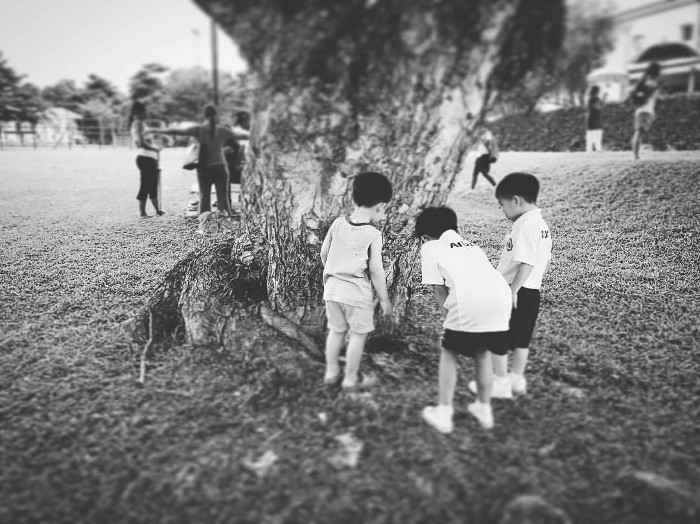
#3 Attend open houses, school orientation and briefing sessions
Unfortunately, we had to miss our school’s Open House, due to prior commitments. However, if you can make the time, this is a good opportunity for your child to tour the school properly, and for you to ask any questions you might have about the school.
We did make it for school orientation and a parents’ talk, and those were helpful because they allowed us to meet the principal and key staff members, find out what to expect when school began and assured us that our children would be in firm but loving hands.
During the orientation, the children were taken to their classrooms to meet their form teachers and future classmates, which meant that they would already know their form teacher before the first day of school. This helps them have a better sense of preparation for the start of school.
#4 Point out primary school going children
One way that we tried to prepare our son for the changes ahead was to point out children in uniform while we were outside and make a conversation about it. For example, we would see a child crossing the road to go to school and say something like this,
“You see that girl? She’s going to primary school. She has to have a big bag for all her school things and books. See how she waits to cross the road? She must walk to school every day and that’s why she knows how to wait safely before crossing the road. Next time when you go to primary school, you will also learn how to be more careful when crossing the road. Mummy will send you to school every day, but there is one road we will need to cross to get to your gate. So you will be just like her and learn how to cross the road so well.”
Through short conversations like these, we were able to introduce to him the idea that being in primary school would “promote” him to becoming a “big boy” and becoming more independent and that that was something exciting and cool to look forward to.
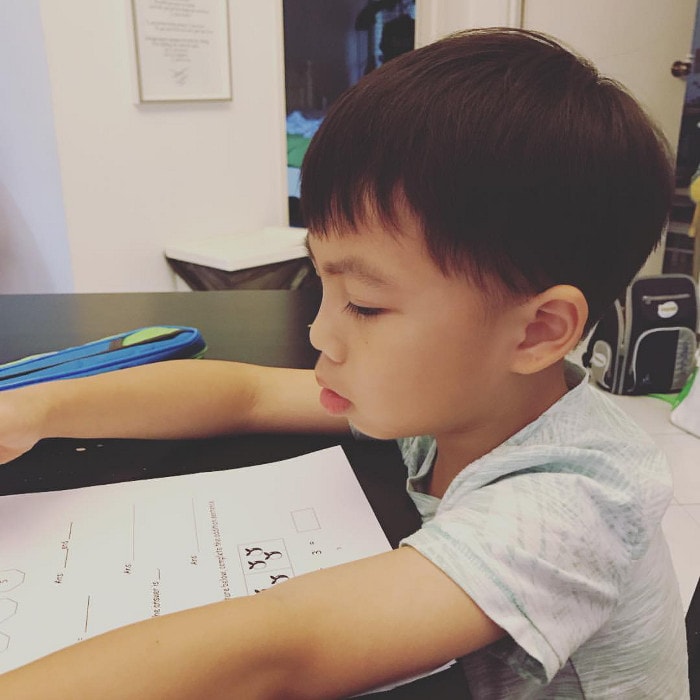
#5 Explain what school life is like
Through conversations like these, we also talked about what school life is like on an average day. For instance, I explained to my son that recess was a time for him to have a snack, drink water, go to the toilet and maybe play for a while with his classmates. I also told him that the bookshop sold all the stationery and books that he would need in school, but that since we had already gotten all these things, he probably wouldn’t need to visit the bookshop during term time.
We also shared how class time is for learning and emphasised the importance of paying attention to the teacher during such times and not being distracted by other things. Related to that, we coached him on how to ask the teacher permission to go to the toilet or to ask a question about what was being taught.
#6 Teach them necessary life skills
As advised by the school and fellow mums, we taught our son how to read the time. This would help him make better sense of his timetable and break times. We also introduced him to money concepts so that he would understand the meaning of cost and change, and have better handles on how to spend his money during recess time.
We also reiterated the importance of healthy habits such as washing hands before and after meal times and when going to the toilet, keeping hydrated throughout the day, and looking after his personal belongings.
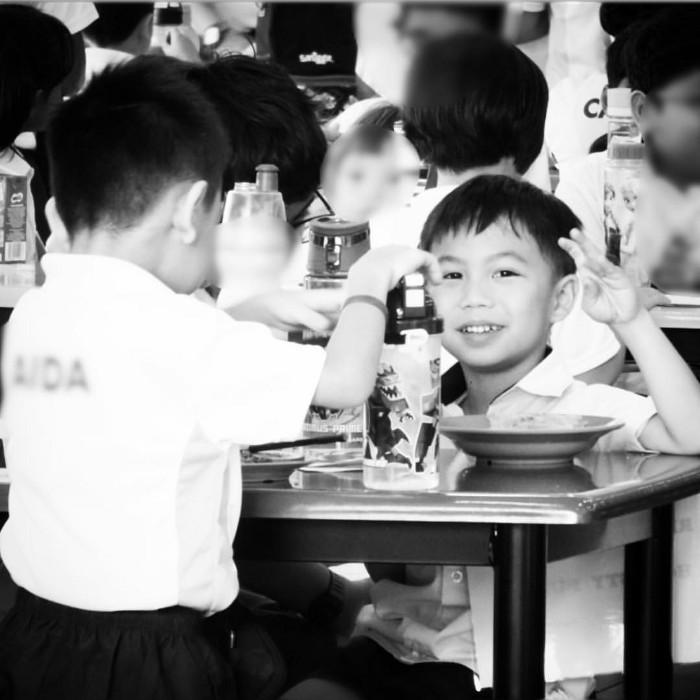
#7 Involve your child in purchasing school items
We brought our son along to buy his school books, uniforms and stationery. While this was slightly inconvenient for us, especially when we had to queue for a long time to get his books, he was happy to be part of the process and asked many questions along the way.
Through inspecting each item together at home, one by one, we could help him make sense of the various books; textbook, activity book, writing a book and this enabled him to understand what teacher was talking about in school when classes began.
#8 Label school items together
I know some parents invest in very professional looking name stickers for all their labelling needs. For us, we printed small labels for all the non-flat items, such as his water bottle, colour pencils and pencils, scissors and a glue stick.
However, for the book items, we asked him to write his name and class on each item neatly. Like most 6 to 7-year-olds, our son’s writing isn’t picture perfect! But as he put in the effort to practice his writing before actually starting to label his books, we saw him deep in concentration, and that encouraged us a lot as parents.
⇒ Related Read: Why Is My Child’s Handwriting So Bad?
I do encourage you to let your child personally write out his personal details on at least a few items, as it fosters a greater sense of ownership over their belongings.
#9 Find ways to encourage your child
Every child has a different love language and may need you to show your love and encouragement in different ways, as he takes this first step into primary school life. For my son, he values words of affirmation and gifts, so my way of encouraging him is to write a short note to him every day and stick it somewhere he is sure to see it. Most days, I stick it onto his snack box cover or inside his wallet.
If your child values quality time, you can encourage her by setting aside 10 minutes every day just to let her share about her day in school – the good and the bad – with no mention about homework. If touch is his love language, then be sure to send them off each morning with a hug!
⇒ Related Read: 10 Reasons Why You Should Hug Your Child Everyday
#10 Celebrate every milestone
To us adults, the little challenges our children face in primary school can seem like “no big deal”. But to them, a lot of it is truly a “big deal”.
From buying their first meal in the school canteen to making a new friend to asking permission to go to the toilet during lesson time, to learning a new game at recess – these events are to be shared, celebrated and remembered.
That’s why I think it’s especially important that parents and children have regular times to talk about their day so that you can be privy to all these exciting new achievements your child is experiencing!
Primary One is truly just the beginning of a new way of life for our children and us, but it can go either way, and a lot depends on us. We can drag our feet, moan about the stressful school system and criticise them for mistakes made, or we can choose to cheer them on, hope for the best, and encourage them to develop a spirit of diligence, commitment and resilience that will stand them in good stead for the rest of their lives.
By Dorothea Chow.
* * * * *
If you find this article useful, do click Like and Share at the bottom of the post, thank you.
Like what you see here? Get parenting tips and stories straight to your inbox! Join our mailing list here.




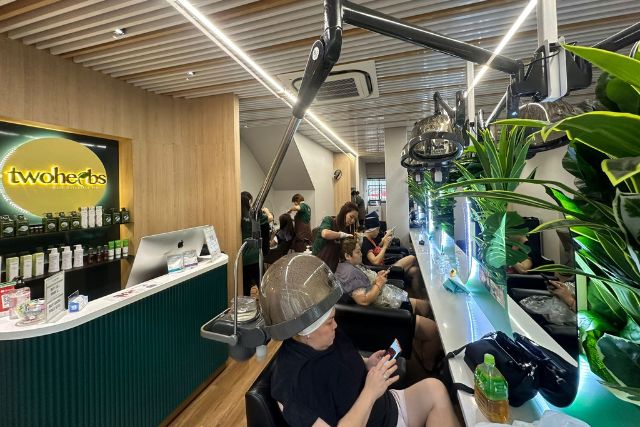





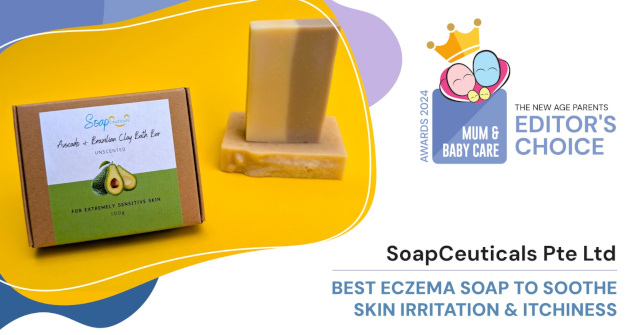

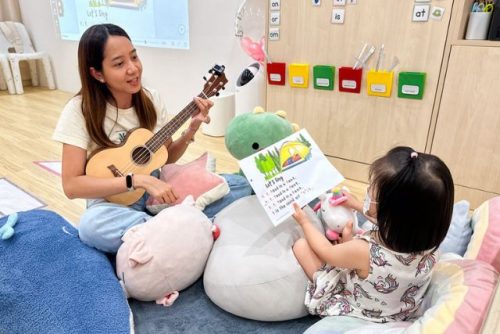

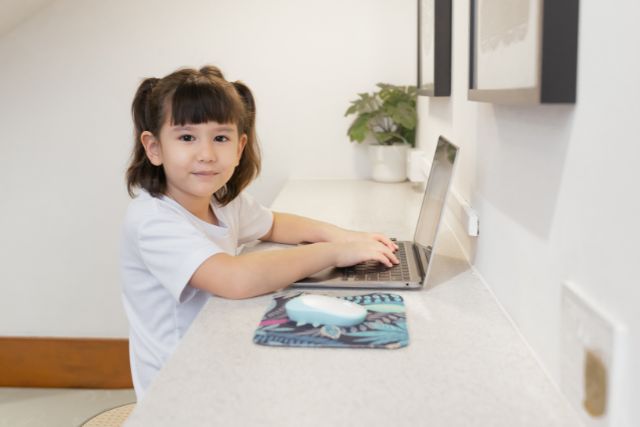
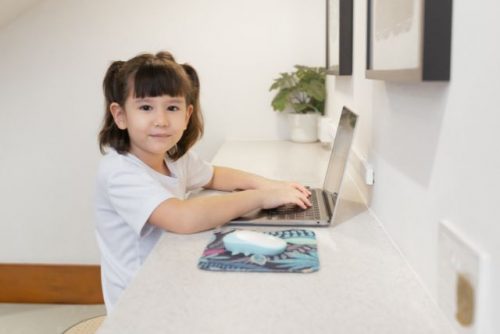

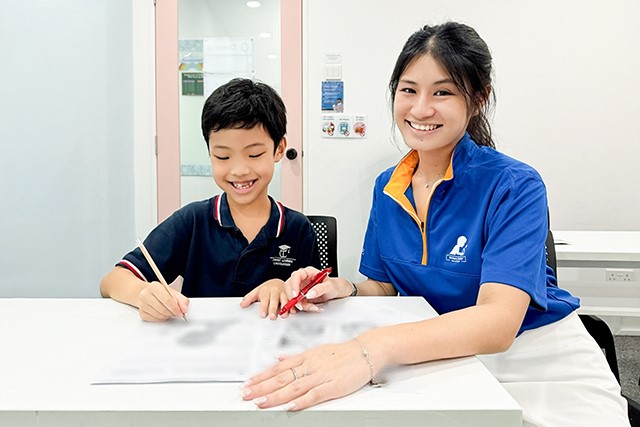
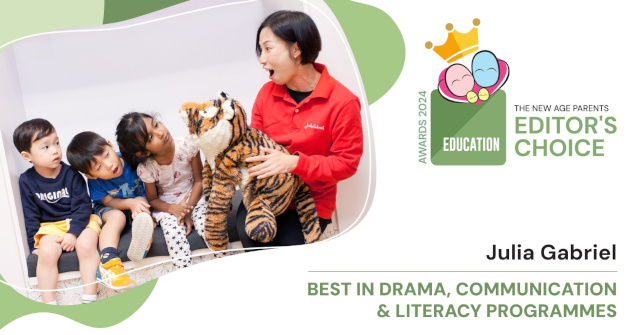


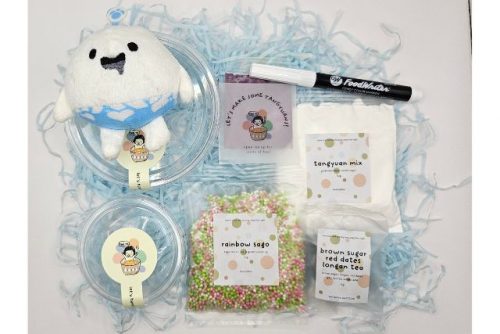


















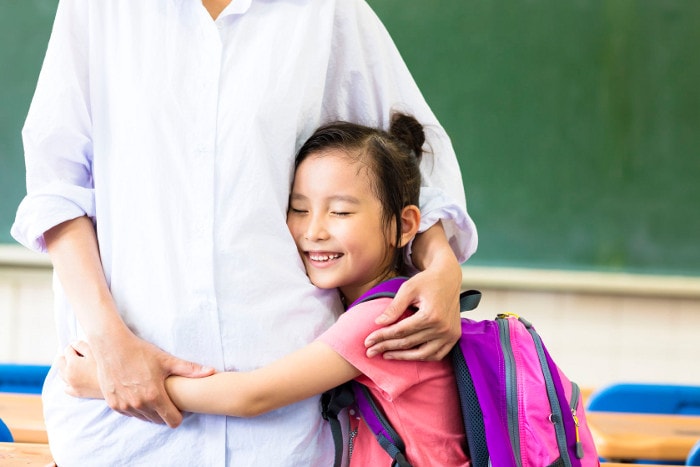
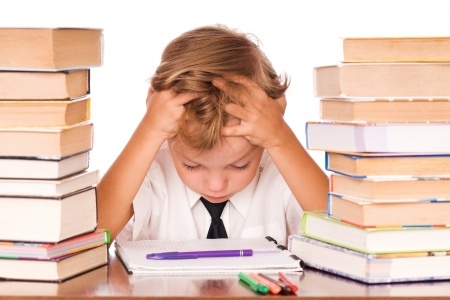
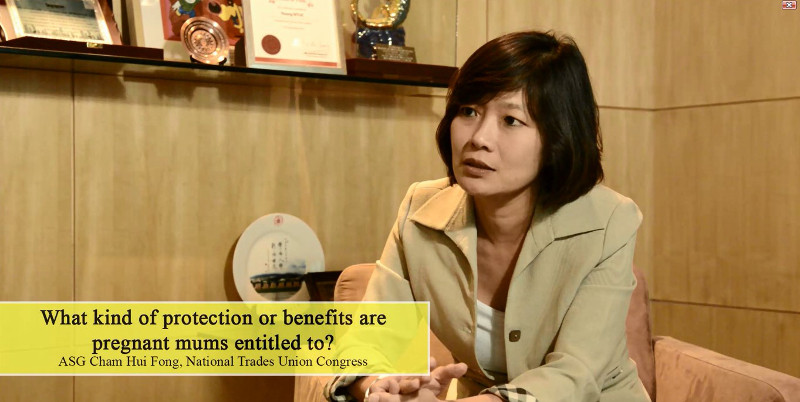

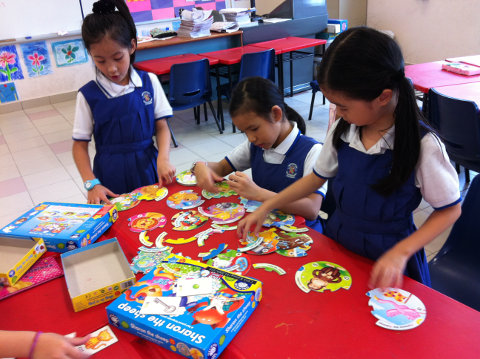















Leave a Comment: